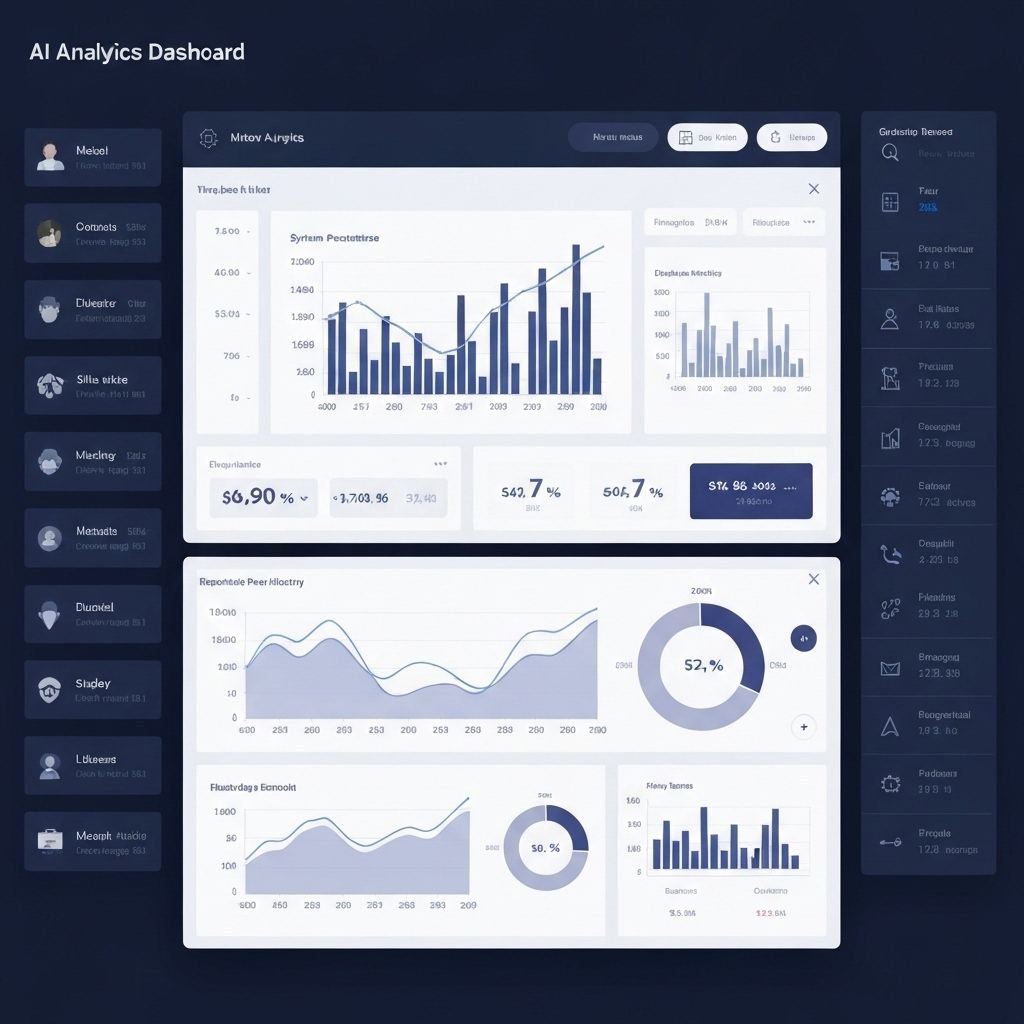Microsoft has unveiled a major update to Copilot, its AI-powered productivity assistant, introducing advanced voice capabilities that enable natural, conversational interactions across the entire Office 365 suite. This groundbreaking enhancement transforms how users interact with their work applications, making AI assistance as simple as having a conversation with a colleague.
Revolutionary Voice Technology
The new voice capabilities leverage Microsoft's latest neural speech synthesis technology, enabling Copilot to understand context, tone, and intent through natural speech patterns. Unlike previous voice assistants that required specific commands, the enhanced Copilot can engage in fluid, multi-turn conversations about complex work tasks.
Key voice features include:
- Natural language processing with contextual understanding
- Multi-language support for over 40 languages
- Accent and dialect recognition
- Real-time speech-to-text transcription
- Emotional tone detection and appropriate responses
- Background noise cancellation
Seamless Office 365 Integration
The voice-enabled Copilot works seamlessly across all Office applications, allowing users to dictate emails in Outlook, create presentations in PowerPoint through voice commands, and analyze data in Excel using natural speech. This integration represents a fundamental shift toward more intuitive computing interfaces.
Microsoft's Corporate Vice President of AI, Sarah Chen, explains: "We're moving beyond the traditional click-and-type interface to something more natural and human. Voice-enabled Copilot understands not just what you're saying, but what you're trying to accomplish."
Enhanced Productivity Workflows
The voice capabilities enable entirely new productivity workflows that were previously impossible. Users can now multitask more effectively, continuing conversations with Copilot while performing other tasks, or getting assistance hands-free during video calls and presentations.
Practical applications include:
- Email Management: Dictate and edit emails while reviewing other documents
- Meeting Assistance: Real-time note-taking and action item generation
- Data Analysis: Voice-driven queries for complex spreadsheet operations
- Content Creation: Collaborative document writing through conversation
- Calendar Management: Scheduling and rescheduling through natural speech
Advanced Natural Language Understanding
The updated Copilot demonstrates sophisticated understanding of business context and workplace terminology. It can interpret ambiguous requests, ask clarifying questions, and maintain context across extended conversations, making interactions feel remarkably human-like.
For example, users can say "Schedule a follow-up meeting with the team we discussed yesterday about the Q1 project," and Copilot will understand the context, identify the relevant team members, and propose appropriate meeting times based on everyone's availability.
Privacy and Security Enhancements
Microsoft has implemented comprehensive privacy protections for voice interactions, ensuring that sensitive business conversations remain secure. All voice data is processed using Microsoft's enterprise-grade security infrastructure with end-to-end encryption.
Security features include:
- On-device processing for sensitive commands
- Encrypted voice data transmission
- Automatic data purging after processing
- Admin controls for organizational voice policies
- Compliance with global privacy regulations
Enterprise Adoption and Customization
Large enterprises can customize Copilot's voice capabilities to understand industry-specific terminology and organizational processes. This customization includes company-specific vocabulary, workflow patterns, and integration with existing business systems.
Early enterprise adopters report significant improvements in productivity metrics:
- 35% reduction in time spent on routine administrative tasks
- 50% faster email composition and response times
- 25% improvement in meeting efficiency and follow-up actions
- 40% increase in user satisfaction with AI assistance
Accessibility and Inclusion Benefits
The voice capabilities significantly improve accessibility for users with disabilities, providing new ways to interact with Office applications. Users with mobility limitations, visual impairments, or learning differences can now access powerful productivity tools through natural speech.
Accessibility enhancements include:
- Voice control for all Office functions
- Audio descriptions of visual content
- Speech-to-text for hearing-impaired users
- Cognitive assistance for complex tasks
- Customizable speech patterns for different needs
Real-World Implementation Case Studies
Several organizations have participated in Microsoft's beta testing program, providing insights into real-world applications of voice-enabled Copilot. These case studies demonstrate tangible benefits across different industries and use cases.
Financial Services: A major investment bank reported that analysts could update client reports 60% faster using voice commands while simultaneously monitoring market data on multiple screens.
Healthcare: Medical professionals can now dictate patient notes directly into Electronic Health Records while maintaining eye contact with patients, improving both efficiency and patient care quality.
Legal: Law firms use voice-enabled Copilot to search case law databases and draft legal documents while in client meetings, providing immediate insights and reducing follow-up time.
Technical Architecture and Performance
The voice capabilities are built on Microsoft's Azure AI Speech Services, utilizing advanced neural networks trained on diverse speech patterns and business contexts. The system achieves 95% accuracy in speech recognition across various accents and languages.
Performance metrics include:
- Response latency under 500 milliseconds
- 99.9% uptime reliability
- Support for continuous conversations up to 30 minutes
- Simultaneous multi-user voice sessions
- Offline capabilities for basic commands
Competitive Landscape and Market Position
Microsoft's voice-enabled Copilot positions the company ahead of competitors like Google Workspace and Salesforce in the AI productivity space. The deep integration with Office applications provides a significant advantage over standalone voice assistants.
Industry analysts predict that voice-enabled productivity tools will become standard within 18 months, with Microsoft's early lead potentially translating to increased market share in the enterprise software sector.
Future Roadmap and Development
Microsoft has outlined an ambitious roadmap for expanding voice capabilities, including plans for multilingual conversations, emotion recognition, and integration with third-party business applications. The company is also exploring voice-activated automation for complex business processes.
Upcoming features include:
- Voice-controlled data visualization and reporting
- Automated meeting summarization and action items
- Cross-application voice workflows
- Integration with Microsoft Teams for enhanced collaboration
- Voice-activated business intelligence queries
Training and User Adoption
Microsoft is investing heavily in user education and training programs to maximize adoption of voice capabilities. The company has developed comprehensive learning resources, including interactive tutorials and best practice guides for different industries.
Early training programs show that users who complete voice interaction training achieve 70% higher productivity gains compared to those who learn through trial and error.
Impact on Workplace Culture
The introduction of voice-enabled AI is changing workplace dynamics and communication patterns. Teams report more natural collaboration when they can interact with AI assistants through speech, leading to more creative problem-solving and faster decision-making.
Workplace culture changes include:
- Increased comfort with AI collaboration
- More fluid meeting dynamics with AI participation
- Reduced technical barriers for non-technical users
- Enhanced remote work capabilities
Conclusion
Microsoft's introduction of advanced voice capabilities to Copilot represents a significant leap forward in human-computer interaction for workplace productivity. By enabling natural, conversational AI assistance across the Office 365 suite, Microsoft has created a more intuitive and accessible computing experience.
As organizations adapt to this new paradigm, we can expect to see continued innovation in voice-enabled productivity tools, fundamentally changing how we interact with technology in professional settings. The success of voice-enabled Copilot will likely accelerate the adoption of conversational AI across all aspects of business operations.
The future of work is becoming increasingly conversational, and Microsoft's voice-enabled Copilot is leading this transformation, making AI assistance as natural as talking to a colleague.



